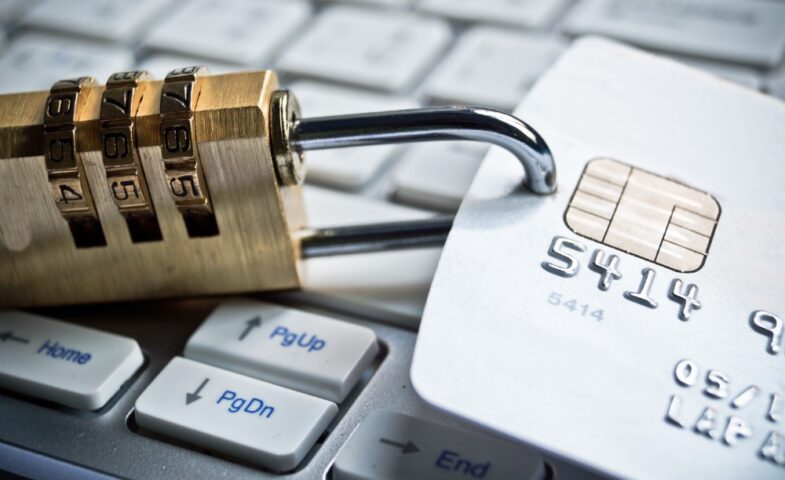Selling a house can be a daunting task! From finding your buyer to closing the deal, all steps must be taken with extra caution. One of the most crucial steps is choosing the right payment method to ensure safety during the exchange.
In this blog post, we’ll reveal our top picks for reliable and safe payment methods when selling a house. So if you’re ready to find out some sage advice, let’s get started!
Advantages of Using a Safe Payment Method

Source: summit-mortgage.com
Using a safe payment method when you plan to sell your house is essential in order to protect the seller from fraud and theft. Cash transactions can be risky, leaving the seller open to theft or fraudsters trying to cheat them out of their money. Electronic transactions are typically considered much safer, but there are still things to consider when selecting an appropriate payment method.
Some of the advantages of using a safe payment method include:
- Increased security – Many electronic systems use advanced encryption and verification systems that increase the security of your transaction.
- Reduced risk of losses – Methods such as wire transfers and escrow services help reduce the risk of lost or stolen funds.
- No need for cash exchange or keeping large amounts of cash on hand – This reduces not only the risks associated with cash transactions, but also minimizes any potential loss from theft or mishandling.
- Reduced paperwork – Paying electronically reduces paperwork associated with contracts and other documents related to sales negotiations.
- Speed and convenience – Electronic payments are typically faster and more convenient than traditional methods such as checks or money orders, allowing sellers to get paid quicker, while reducing wait times for buyers who expect immediate access to their funds after purchase.
Types of Payment Methods

Source: newventureescrow.com
When selling a home, buyers and sellers may choose from several types of payment methods. Each one offers unique benefits, risks, and considerations. It is important to understand your options so you can make the best choice for you when it comes time to close the deal. Common real estate payment methods typically include:
- Cash: Cash is one of the most common choices for purchase as it is fast and efficient. Be sure to take some precautionary steps beforehand such as obtaining a receipt to ensure funds are verifiable in case of an escrow dispute later on in the purchasing process.
- Personal Check or Money Order: A personal check or money order is considered more secure than cash because it leaves a paper trail that can be used if there are any discrepancies with funds later in the process. However, both of these payment types require special measures and precautions before they can be accepted so they may not be ideal if speed and convenience are factors in your decision-making process.
- Bank Wire Transfer: Bank wire transfers provide fast delivery of funds and offer greater security than other payment methods but typically require a fee for this service to be paid by the buyer or seller. It also requires access to online banking so it might not be suitable for those without this facility available.
- Escrow Account: An escrow account is opening a savings account at an institution that acts as an intermediary between two parties during a transaction agreement; this offers certificates of deposit (CDs) set aside from each parties’ deposits which then serves as protection against any losses incurred during the purchase process due to fraudulent activity or breach of contract by either party involved. This requires comprehensive knowledge around legal regulations; therefore professional advice should always be sought prior to setting up such type of arrangement.
- Credit Card: Credit cards provide more protection under federal law than checks, but may incur higher fees due to processing costs associated with their use – both buyer and seller should always make sure they understand how their provider handles payments when making these transactions.
Bank Transfers
Bank transfers are one of the most secure payment methods for selling a house. This involves transferring money directly from a buyer’s bank account to the seller’s bank account. Utilizing a bank transfer for large purchases is always the safest option, as it allows both buyers and sellers to have full control over their personal info and strategy throughout the process.
When sending funds via this method, it is important to ensure that both parties are clear on any fees or limitations associated with the transfer and that all information on both accounts has been verified prior to submitting payment. Additionally, confirmations should be sent in order to provide an audit trail which can be used in case of any unexpected delays or disputes arising at a later date. The more detailed records you have as proof of payment, the better your chances are at resolving any issues that may come up.
Bank transfers can also provide benefits during closing by allowing buyers and sellers to allocate funds quickly and directly into escrow in order to speed up processing times without costly intermediary fees or potential fraud risks associated with more traditional payment methods such as checks or credit cards. Additionally, if sellers are able to provide an authorization upfront for downloading their file (which holds information about their home purchase/sale), buyers receive additional reassurance that any funds being sent will reach them safely and securely once the authorization is received.

Source: okay.com
Conclusion
After carefully evaluating all payment methods, cash is considered to be the safest option when selling a house. With cash payments, sellers receive the entire amount immediately and there is no risk of bounced payments or fraudulent transactions. In addition, sellers don’t have to worry about extra fees that may incur with other payment types like wire transfers or checks.
On the other hand, if sellers prefer not to receive a large sum of money at once and still want to protect themselves from fraudulent transactions, then using a certified escrow company may be the best option. By working with an experienced escrow agent and taking all necessary legal precautions along the way, sellers can ensure that their sale is handled professionally and securely from start to finish.




